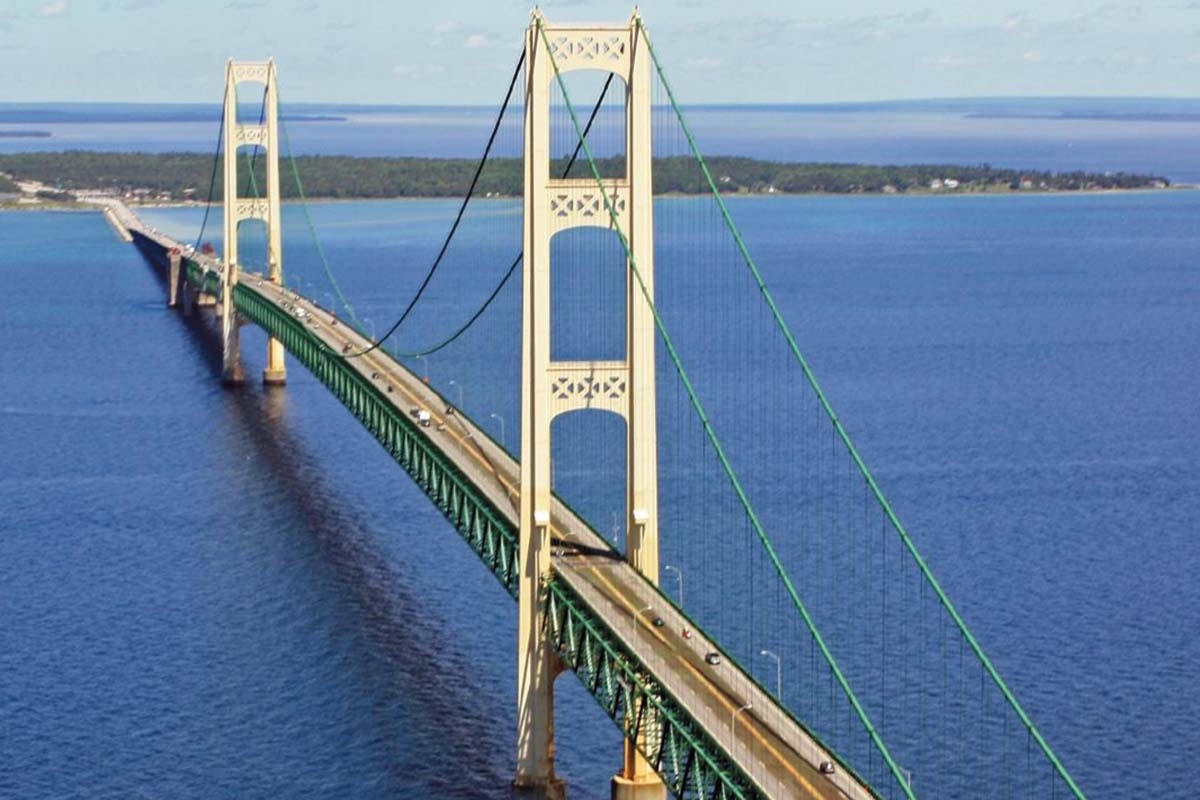
- Details
- By Joe Boomgaard
LANSING, Mich. — A state regulatory agency has granted four Michigan tribes permission to intervene in a contentious case involving Enbridge Energy’s application to relocate its Line 5 oil pipeline in the Straits of Mackinac to a proposed tunnel under the lakebed.
Three of the tribes — the Bay Mills Indian Community, Little Traverse Bay Bands of Odawa Indians and Grand Traverse Bay Band of Ottawa and Chippewa Indians — are asserting treaty rights to formally intervene in the case. Each was a signatory to the 1836 Treaty of Washington that ceded territory to the United States federal government for the creation of Michigan, but also guaranteed them the rights to hunt and fish throughout the area, which includes the Straits of Mackinac.
Meanwhile, the Nottawaseppi Huron Band of Potawatomi is intervening and offering a “cautionary warning” based on the tribe’s prior experience with a 2010 catastrophic 800,000-gallon oil spill in the Kalamazoo River involving another Enbridge pipeline.
Michigan Public Service Commission Administrative Law Judge Dennis Mack approved the tribes’ requests to intervene on Aug. 13.
The case stems from Enbridge Energy’s proposal to relocate a segment of the Line 5 pipeline, originally built in the 1950s, to a tunnel proposed below the lakebed in the Straits of Mackinac, which connects Lake Michigan and Lake Huron.
The company says the move is necessary to ensure the environmental protection of the Straits and broader Great Lakes region from any possible oil spill or leak in the existing pipeline. The existing section of pipeline, which is anchored to the lake bottom of the Straits, has suffered damage from ship anchors and general aging of the infrastructure in recent years.
In separate petitions, the tribes made the case that Enbridge’s current pipeline and its proposed relocation to a tunnel under the Straits of Mackinac endangers their cultural way of life, including subsistence fishing, and unnecessarily poses environmental risks to the Great Lakes and areas and ecosystems further inland, where the tribes also have treaty rights.
“An oil spill or geologic mishap from tunneling under the Straits would devastate LTBB beyond any economic valuation,” James Bransky, attorney for the Little Traverse Bay Bands, wrote in an Aug. 3 petition. “LTBB has a deep substantial interest in protecting its reserved ceded territory Treaty rights to preserve the health and way of life of its current and future generations of Tribal citizens. This interest obligates LTBB to ensure that the natural resources in and connected to the Straits are not harmed by Enbridge’s proposed project.”
Moreover, the tribes are calling for the pipeline to be decommissioned, arguing that its continued operation — whether on the lake bed or in the proposed tunnel — only furthers a dependence on fossil fuels and exacerbates global climate change.
Regional business publication MiBiz reported this was the first time the tribes have had the opportunity to assert their treaty rights before the Michigan Public Service Commission.
“It’s important for people to continue to understand that Line 5 puts the tribal way of life, tribal treaty rights and tribal cultural resources at risk every single day and it’s time to decommission the pipeline,” Bay Mills Tribal Attorney Whitney Gravelle told MiBiz, calling it a historic decision to allow the tribes to intervene.
Earlier this week, Enbridge formally objected to the tribes’ petitions, saying that they “fail to demonstrate that they are entitled to intervene.” Further, the company said that if the MPSC were to allow the tribes to intervene, their participation should be limited to “germane issues” about Enbridge’s demonstrated public need for the proposed pipeline, whether the proposed pipeline is designed and routed properly and whether it will meet safety and engineering standards.
“While Enbridge does not object to the Tribes being granted permissive intervention, their participation should be limited to the relevant issues before the Commission and the Tribes should not be allowed to raise issues relating to the construction of the tunnel, the continued operation of Line 5, the current safety of Line 5, or climate change,” Michael Ashton, an attorney for Enbridge, wrote in the objection.
In response to Enbridge, Amy Wesaw, the staff attorney for the Nottawaseppi Band, cited the company’s “flawed bases” in its objections, noting that the tribe faces “imminent risk of harm, both to the integrity of its cultural resources and to the health and welfare of its members.”
As well, Wesaw said Enbridge was incorrectly trying to limit the tribe’s participation in the MPSC process with its move to disallow the tribe from discussing the company’s past practices “that resulted in over a billion-dollars of clean up and environmental devastation.”
“Though ignoring past catastrophes and looming catastrophes would be convenient for Enbridge, they are relevant to the inquiry concerning its new proposal,” Wesaw wrote.
In addition to its assertion of treaty rights, Bay Mills Indian Community also cited the Straits of Mackinac’s cultural significance for the tribe, whose oral histories refer to the Great Lakes and the Straits area in particular as the origin of creation for North America.
The MPSC outlined a roughly 11-month process for hearings on Enbridge’s proposal to relocate the pipeline to the tunnel. The next motions are due Sept. 2.
More Stories Like This
50 Years of Self-Determination: How a Landmark Act Empowered Tribal Sovereignty and Transformed Federal-Tribal RelationsCherokee Nation Launches Digital Dictionary to Support Language Revitalization
Prairie Band Potawatomi Nation Chairman Addresses Homeland Security Contract
Lancaster County to Recognize Conestoga-Susquehannock Tribe on Massacre Anniversary
How the Gaming Economy Helps Tribes Navigate Shifting Policies
Help us defend tribal sovereignty.
At Native News Online, our mission is rooted in telling the stories that strengthen sovereignty and uplift Indigenous voices — not just at year’s end, but every single day.
Because of your generosity last year, we were able to keep our reporters on the ground in tribal communities, at national gatherings and in the halls of Congress — covering the issues that matter most to Indian Country: sovereignty, culture, education, health and economic opportunity.
That support sustained us through a tough year in 2025. Now, as we look to the year ahead, we need your help right now to ensure warrior journalism remains strong — reporting that defends tribal sovereignty, amplifies Native truth, and holds power accountable.
 The stakes couldn't be higher. Your support keeps Native voices heard, Native stories told and Native sovereignty defended.
The stakes couldn't be higher. Your support keeps Native voices heard, Native stories told and Native sovereignty defended.
Stand with Warrior Journalism today.
Levi Rickert (Potawatomi), Editor & Publisher

